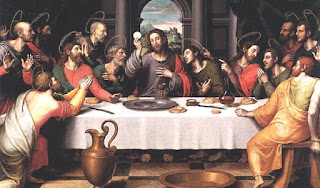XII SUNDAY IN ORDINARY TIME - Jeremiah 20:10-13
Through Facebook Messenger, I got a message from Mr Malabo in Solwezi, asking about prophets: “Fr. In the Bible, it is said that God raised Prophets in the time of need. Why then do we have so many today that even contradict each other?”
Indeed, nowadays, there are so many people claiming to be prophets and they contradict each other, because many of them are prophets of themselves, not of God. Even in the Old Testament, there were many prophets, even associations of prophets, but many of them were false prophets, misleading the people instead of conveying faithfully God’s word and God’s will.
Moses had warned the people about the appearance of false prophets:
“But any prophet who speaks in the name of other gods, or who presumes to speak in my name a word that I have not commanded the prophet to speak—that prophet shall die.” You may say to yourself, “How can we recognise a word that the Lord has not spoken?” If a prophet speaks in the name of the Lord but the thing does not take place or prove true, it is a word that the Lord has not spoken. The prophet has spoken it presumptuously; do not be frightened by it.” (Dt 18:20-22)
There are so many people who enrich themselves while claiming to be prophets. Those are false prophets. There are so many people who look for power while presenting themselves as prophets. Those are false prophets. Jesus told us to look at their actions because a good tree is recognised by the good fruits. In his ministry, is he at the service of the word of God or puts the word of God at his own service or at the service of his masters? Does he suffer because of his faithfulness to the word of God or he finds prestige and glory through it? Nowadays, as in the past, there are many people who try to play God and put God at their own service, and they are ready to preach strange doctrines and announce wild prophecies about earthly things that have very little to do with the Kingdom of God.
In this Sunday’s readings, we are presented with the prophet Jeremiah. Because of the word of God and of his faithfulness to it, Jeremiah went through rejection and persecution. He complains that even the ones who used to be his friends had turned against him. He even thought of stopping being a prophet, but with his heart full of the love of God, he couldn’t do it.
Many times, the words of a true prophet are not pleasing to our ears because they challenge our attitudes and question our decisions and our way of life. Being truthful to the word of God, the true prophet puts his trust in the Lord and calls us to conversion. He is not concerned with the wealth of this world, but with a sound relationship with God as the foundation for a sound relationship with the others. A true prophet does not offer easy solutions as if God is ready to do for us what we should do ourselves. He does not preach an easy life, where all our desires become commands to God. Lesa ni mutima kyebele, meaning that we cannot dictate to him what to do.
The true prophet puts his trust in the Lord, as Jesus advises us to do: “Do not be afraid of those who kill the body but cannot kill the soul; fear him rather who can destroy both body and soul in hell. Can you not buy two sparrows for a penny? And yet not one falls to the ground without your Father knowing. Why every hair on your head has been counted. So there is no need to be afraid; you are worth more than hundreds of sparrows.” He cares for us and he knows what is best for us.



